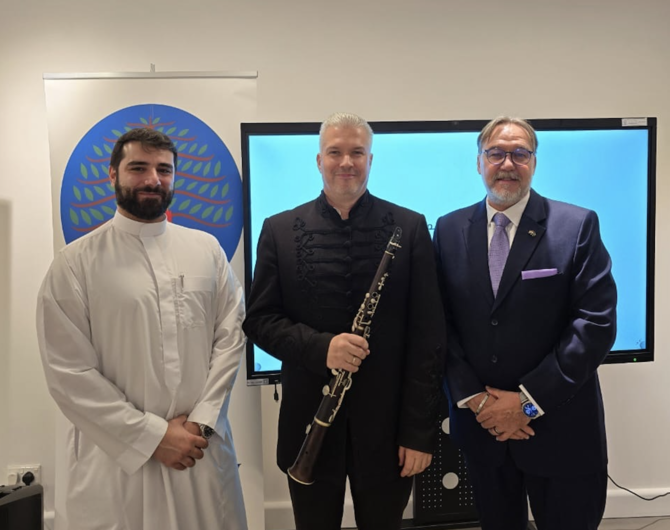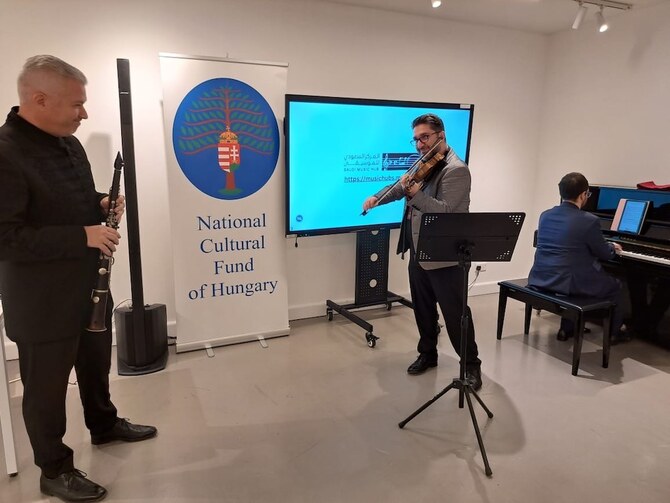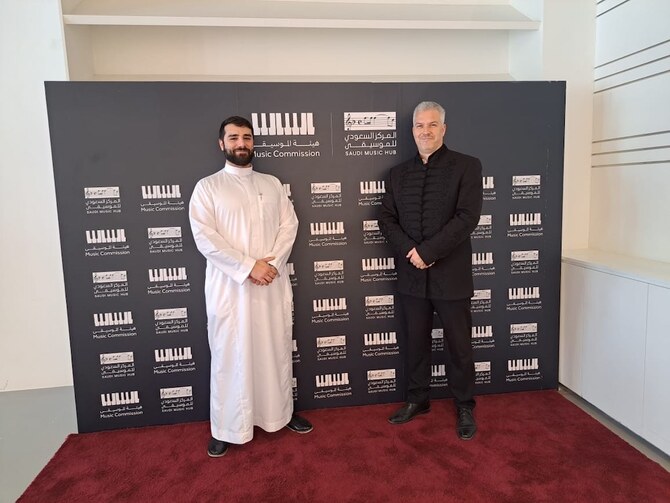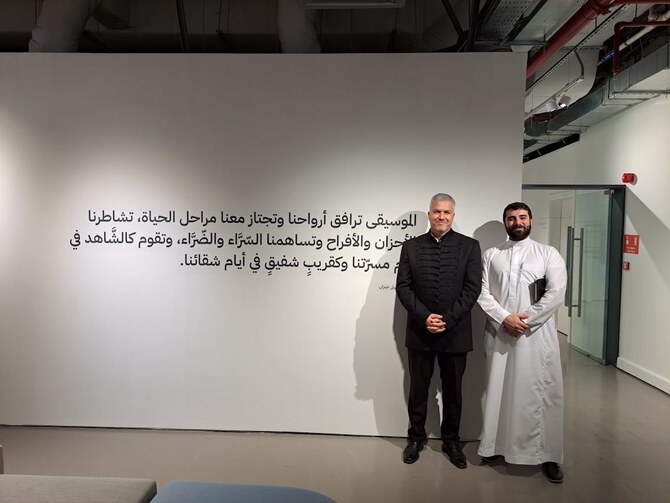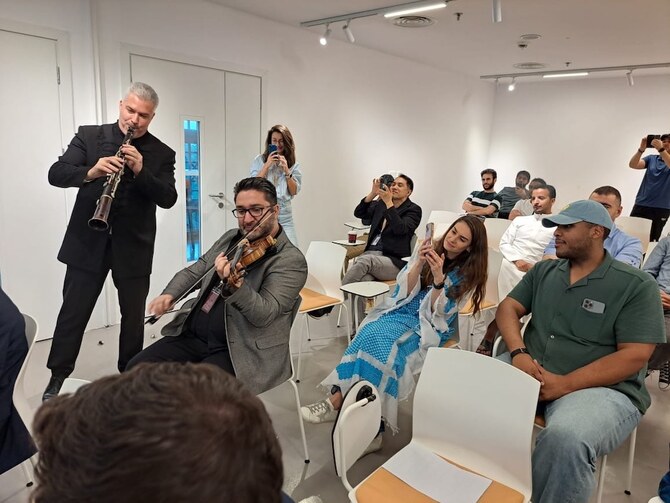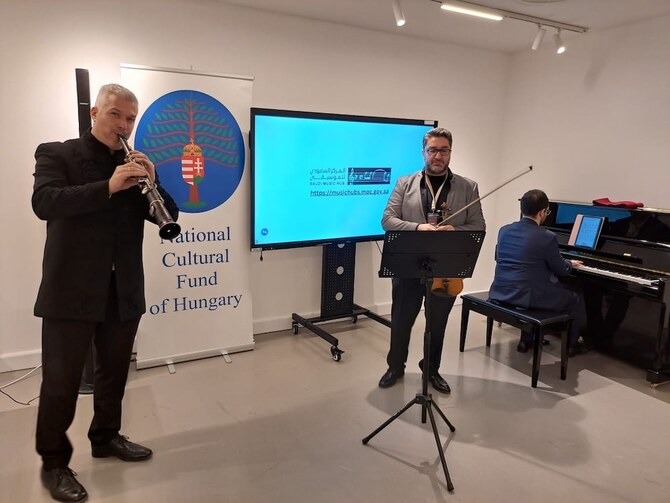RIYADH: Balazs Selmeci, Hungary’s ambassador to Saudi Arabia, believes music is a key aspect of cultural collaboration to bridge barriers between nations.
“I am convinced that culture, and the music within it, is one of the most important complementary tools in the toolkit of diplomacy as the music is understood without words by people with different traditions and languages,” Selmeci told Arab News.
“Music, melody, and harmony are loved by everyone from early childhood, the music is a bridge between people and nations, connecting us,” he said.
As part of his dedicated mission to strengthening Saudi-Hungarian ties across sectors, the ambassador brought Hungarian musician and composer Josef Terek to the Kingdom to perform and conduct a masterclass at the Saudi Music Hub.
It was during this masterclass that Terek and the ambassador surprised attendees with a cross-culture performance with Saudi musicians.
“It was an immense and moving experience for me when a Hungarian musician performed a traditional Hungarian piece, the ‘verbunk dance,’ accompanied by two Saudi musicians — one a violinist and the other a piano artist-teacher,” he said.
The ambassador added that melody conveys the same feelings to everyone, regardless of the nationality of the musician, the audience, or the origin of the instrument being played.
“Music is a key building element of the relationships between our countries, and it has been a great pleasure for me that, after 2017 and 2022, we have had the opportunity for a third time to introduce a Hungarian musician (and) a Hungarian musical tradition in Saudi Arabia,” he noted. “I was especially pleased that this time an artist playing a unique, Middle Eastern-origin wind instrument could showcase their talent at the Saudi Music Hub.”
Speaking about the significance of the Saudi Music Hub, the ambassador added: “The fact that the performance took place at the Saudi Music Hub, a young institution with great potential, gives the event special significance.
“It is where young Saudis can learn the art of music and later bring not only international but also traditional Saudi musical art to other parts of the world, becoming ambassadors of wordless diplomacy for Saudi Arabia.”
The ambassador pointed out that it was the very first performance where Hungarian and Saudi artists performed together.
He said he could see people thoroughly enjoyed the it and were pleasantly surprised to discover that such a “lesser-known instrument could be used not only for folk music or classical compositions but also for internationally renowned hits like ‘Besame Mucho,’” which, he added, was welcomed with an ovation from the audience.
“All of this convinced me once again that music has no boundaries, and we must organize more such joint performances and shows in the future, featuring Hungarian artists in Saudi Arabia and Saudi artists in Hungary, perhaps even involving music students from both countries,” he said.
During his masterclass, Terek showcased the special instrument of Hungary, the tarogato, to the students and musicians in the Saudi Music Hub.
“I want to show this 100-year-old instrument, it’s a new possibility between the two countries because when we are playing together, a pianist from Saudi Arabia and me from Hungary it’s a very strong cultural cooperation … I think it’s a new way between the two countries,” Terek said.
The masterclass offered a detailed and immersive workshop on the tarogato and showcased its deep-rooted history.
“The first taragato was (made) 700 years ago in Hungary … it’s similar to the Turkish pipe or the Mizmar … Our old instrument and your old instrument were brothers,” he told Arab News.
Speaking about his visit to the Kingdom, he said: “This is the first time in my life in Saudi Arabia and it’s a very wonderful country. Here all of the people are really friendly. I hope that we can do more programs maybe here or maybe in Hungary.”


